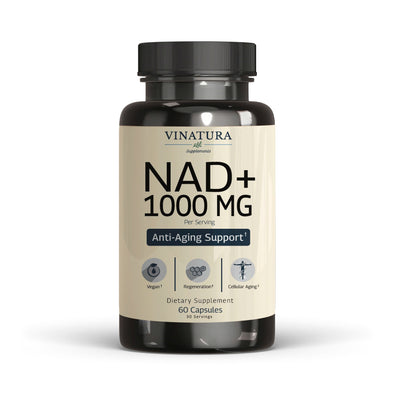
What is the Best Time to Take Berberine?
Many users wonder when the best time to take Berberine is. Berberine can help improve physical health, which in turn enhances mental well-being. However, not every time of day is optimal for taking this supplement. This article will help answer your questions about when to take Berberine for the best results.
Before exploring further, please read the disclaimer located at the end of this webpage.
Key Takeaways
- Berberine is a potent compound used in traditional medicine for centuries to support health.
- The best times to take Berberine are in the morning, before meals, and at night before bed.
- Taking the supplement on an empty stomach, ideally 30 minutes before meals is recommended.
- Berberine usually has a relatively quick effect, but cardiovascular health or cholesterol balance improvements may take longer to notice.
- To enhance the effectiveness of this compound, it should be combined with physical exercise and a healthy diet.
- It is advisable to follow a doctor’s guidance when using this supplement and to avoid it if you are pregnant, breastfeeding, or have low blood pressure.
What is Berberine?
Berberine is a compound found in several plants, including goldenseal, barberry, and Oregon grape. This ancient compound has a history of hundreds of years in traditional medicine systems such as Chinese medicine, Ayurveda in India, and Native American medicine.
Recognized as a functional food supplement, Berberine can help with weight management, blood sugar stabilization, and heart health, especially when taken in the correct dosage and at the right time.
Read more: Does Berberine Affect Thyroid Medication?
What Is the Best Time to Take Berberine?

Regularly distributing the intake of Berberine throughout the day helps maintain stable levels of this compound in the body. Since Berberine has a half-life of about five hours, taking it after breakfast and dinner is more beneficial than consuming it only in the morning or at night.
However, these are general guidelines, and individual responses may vary. To ensure safety and efficacy, listening to your body is essential.
If you are new to taking Berberine, start with a low dosage and monitor your body's response before gradually increasing it. Additionally, try taking it at different times during the day to determine what works best for you. Consistent use is crucial for maximizing the supplement's effectiveness regardless of the time.
When Should You Take Berberine?
To achieve optimal effects from this compound, consider the following timings for taking Berberine:
Morning
After a night of fasting, your body will be significantly hungry, and blood sugar levels may drop. Therefore, taking Berberine each morning upon waking is an excellent way to stabilize blood sugar and enhance insulin sensitivity before consuming more sugars through meals.
With or Without Foods?
You can also consider using Berberine both when you are hungry and when you eat, depending on your health condition. These are also suitable times to use this compound.
Using this compound when eating will help you take advantage of blood sugar and lipid spikes, and using it when you are hungry will help you control the amount of food you take in. That is, you will limit eating too much food, thereby helping you control your weight better.
Before Bed
Berberine can help improve blood sugar levels and reduce obesity by suppressing nighttime cravings when taken before bed. Monitoring your levels can reveal improved stability each morning with this method.
Can You Take Berberine on an Empty Stomach?
Berberine is considered relatively safe and unlikely to cause significant side effects, so it can be taken on an empty stomach. For optimal effectiveness, it is best taken 30 minutes before meals. While it is generally safe, some individuals may experience digestive issues like nausea, bloating, or diarrhea as their bodies adapt. If these symptoms occur, seek medical attention promptly.
Learn more: Berberine Vs Inositol: Which Is Best For Weight Loss?
How Long Does Berberine Take to Work?
The time it takes to see the effects of Berberine can depend on the dosage, your body's ability to accept it, and your health condition.
For digestive problems or blood sugar control, Berberine often shows relatively quick improvements. Meanwhile, if using Berberine to improve cardiovascular health or stabilize cholesterol, it will take a longer period of time, from several weeks to several months, for us to see the difference.
Things to Consider When Taking Berberine

Here are some considerations to enhance your experience with Berberine:
- Clearly define your goals for using Berberine. Different objectives may require adjustments to your diet alongside the supplement. Combining Berberine with a balanced diet and exercise can improve results for weight loss.
- Berberine is not recommended for pregnant or breastfeeding women or those with low blood pressure. If you fall into these categories, discontinue use to ensure your and your baby's health.
- To achieve the desired effects, it’s essential not only to choose the right timing for taking Berberine but also to maintain a healthy lifestyle, engage in regular physical activity, and consume a balanced diet.
- In some cases, Berberine may interact with other medications you are taking. Therefore, following your doctor's recommendations and gradually increasing the dosage while monitoring your body's responses is best.
Conclusion
In conclusion, various factors, especially personal circumstances, must be considered to use Berberine effectively. Carefully evaluate the best times to take Berberine by monitoring your health conditions and sensitivity to the supplement. We hope this article will help you use Berberine effectively.
References
- [1] Pinon, J. (2024). When should you take Berberine for optimal benefits. Retrieved from https://longevity.technology/lifestyle/when-should-you-take-berberine-for-optimal-benefits/
- [2] Utami, A. R., Maksum, I. P., & Deawati, Y. (2023). Berberine and Its Study as an Antidiabetic Compound. Retrieved from https://pmc.ncbi.nlm.nih.gov/articles/PMC10376565/
- [3] (n.d.). Retrieved from https://pubchem.ncbi.nlm.nih.gov/compound/2353
- [4] A novel function of lipoprotein [a] as a preferential carrier of oxidized phospholipids in human plasma (N.d.). Retrieved from https://www.jlr.org/article/S0022-2275(20)34646-0/fulltext
- [5] Liver-specific ablation of insulin-degrading enzymes causes hepatic insulin resistance and glucose intolerance, without affecting insulin clearance in mice. (2018). https://www.metabolismjournal.com/article/S0026-0495(18)30169-0/fulltext
Author

Product Disclaimer
Including an ingredient or study does not evaluate, endorse, or recommend any Vinatura product or any third-party product. Some ingredients discussed may not be used in any Vinatura product.
The content of the articles has not been evaluated by the Food and Drug Administration (FDA) and is not intended to promote or endorse any specific product. Any products sold on this website are not intended to diagnose, treat, cure, or prevent any disease.
Opinions and Endorsements
Any claims, statements, or opinions expressed in the articles are those of the author(s) and do not necessarily reflect the views or opinions of the manufacturers of the dietary supplement products. The products sold on this website are separate from the content of the articles and are not directly endorsed or associated with the information presented here.
Liability Disclaimer
The author(s) of the articles, website, and manufacturers of the dietary supplement products do not assume any liability for any potential consequences arising from the use of the information provided in the articles. Ingredient effects, dosages, and safety vary by individual, formulation, and context; some ingredients interact with medications or may be unsuitable during pregnancy or lactation. It is recommended that individuals consult with a qualified healthcare professional before making any dietary or lifestyle changes, including the use of dietary supplements.
Product Usage
Please refer to the product labels and packaging for specific usage instructions and guidelines for the dietary supplement products sold on this website.
Customer Support
For any concerns or questions regarding the dietary supplement products, please contact our customer support team, who will be more than happy to assist you.






Leave a Comment
Be the first to comment.
What do you think?